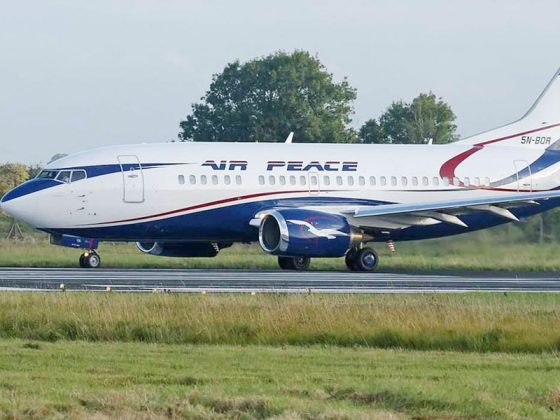The aviation sector in Nigeria has come under the media microscope recently. Having become a matter of public interest with news that filtered in from the United States of America.
It witnessed a plethora of voices and all shades of opinions. Why not? On any matter of public import and interest, people express their opinions. So, it is healthy to differ on some points. This is why I consider it important to share my thoughts on what the likely impact of government mismanaging the situation.
The fact that Air Peace is the only domestic airline that flies international routes from Nigeria speaks volumes. Facts show that their fleet rank amongst the newest and the best maintained of all the airlines operating in Nigeria. The quality of their crew is also unrivalled in Nigeria. Little wonder, frequent domestic flyers are testifying to the difference between Air Peace and her competitors in the Nigerian airspace.
This is why I fear that if this matter is not carefully managed, chances are that it can become a virus, with the potency of not just afflicting but annihilating the airline. The ripple effects of winding down the defunct Nigerian Airways is still plaguing the industry and the economy, if I may add.
By way of trying to enumerate the responses that play up on my mind, there might run into double figures, including but not limited to, disruption of the aviation sector; massive job losses, downing of the Nigerian flag in the international airspace, dangerous signal to philanthropists and investors; negative impact on government revenues; and socio-psychological impact on passengers and suppliers.
It is clear that whatever affects the biggest player in any segment would come with ripple effects. Given that Air Peace is the biggest domestic player in the aviation sector in Nigeria, it would follow that if anything, negative or positive happens to it, and it sneezes, other players would catch cold. Interestingly, these other players include both local and foreign businesses.
Another inevitable impact would be job losses. The airline presently employs over 3000 Nigerians, who’s means of livelihood are now threatened with uncertainties hanging over the business because of this indictment. It must be noted that each of these over 3000 employees has at least four dependents, factoring only immediate families into it. If parents and parent-in-laws are added, it would be that at least 1000 of them are married and supporting at least one aged parent and parent-in-law as the case maybe. That simple arithmetic means that at least 21000 Nigerians derive their sustenance from Air Peace as a business. The welfare of these endangered citizens should be enough to make the government of the day to quickly intervene to avert crises.
It will be recalled that when xenophobic attacks bred friction between Nigeria and Republic of South Arica, diplomatic channels, up to the presidency of both countries, were activated to save the businesses of both countries at each other’s shores.
Social scientists can attest to the fact that if this huge number of people are disconnected from their jobs and benefactors, it can trigger an increase in crime and other social vices. Given the high level of unemployment currently confronting Nigeria, no effort should be spared in ensuring that the situation is not compounded.
For patriotic Nigerians, it is important that the green-white-green continues to fly high in the comity of nations, irrespective of field. And if government cannot do it, individuals had better do so for national pride. As things stand, only Air Peace flies Nigeria’s flag in the global aviation community. All hands must be on deck to safeguard this national dignity.
My little knowledge of the aviation sector shows that global suppliers often apply economy of scale to dimension markets, which in turn helps in costing and supply chain management. What this means is that the Nigerian aviation market is only able to get the attention of some global suppliers to meet volumes with the influence of Air Peace. The fear is that if this airline is afflicted and annihilated, other smaller airlines might not have the capacity to sustain the support of leading global players, for both human and material resources. The overall impact is better imagined and wished away, as it could include unhealthy aircraft being put to use with catastrophic consequences.
It is expedient for government to examine the impact Air Peace is making to the entire internally generated revenue chain, at all levels. If Air Peace is the biggest domestic airline, it follows that the business is making the highest contribution in taxes (corporate and individual), parking fees, passenger service charges, import duties, etc. These also apply to the local suppliers on whom the airline is relying to serve the public.
It is on these points that I stand in reiterating my call on the Federal Government to promptly intervene to ensure a speedy and equitable resolution of this matter in the interest of the nation.
THISDAY
